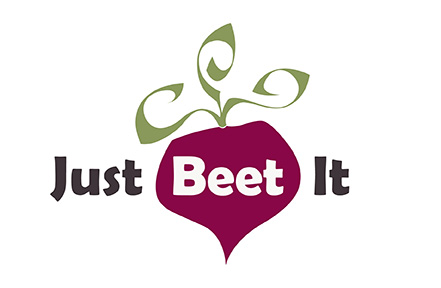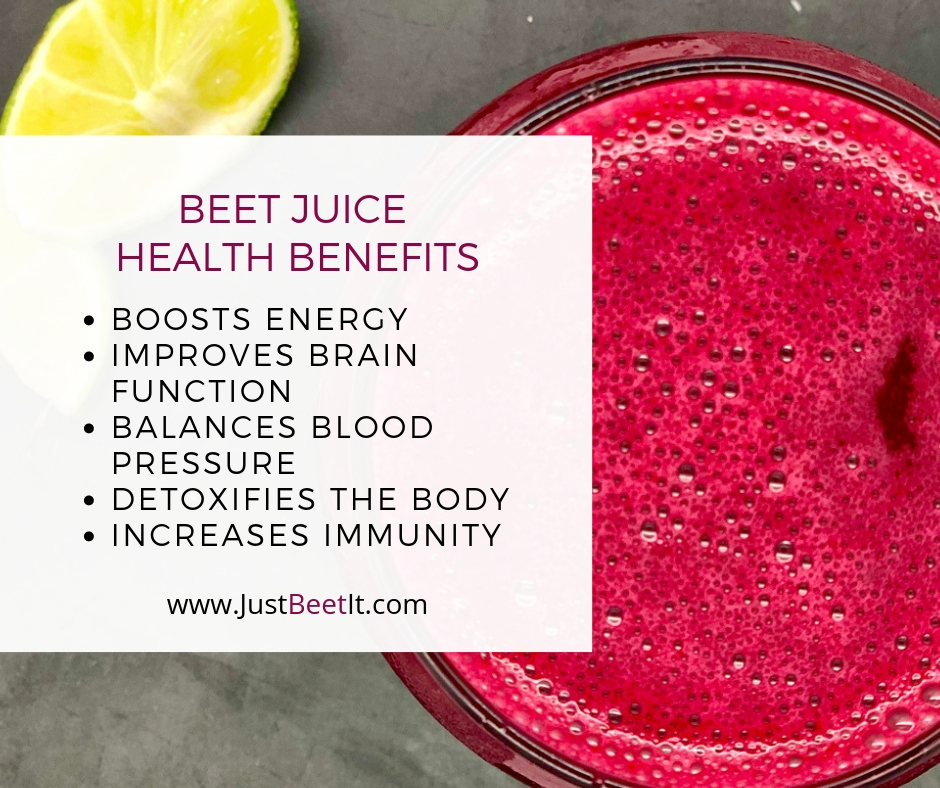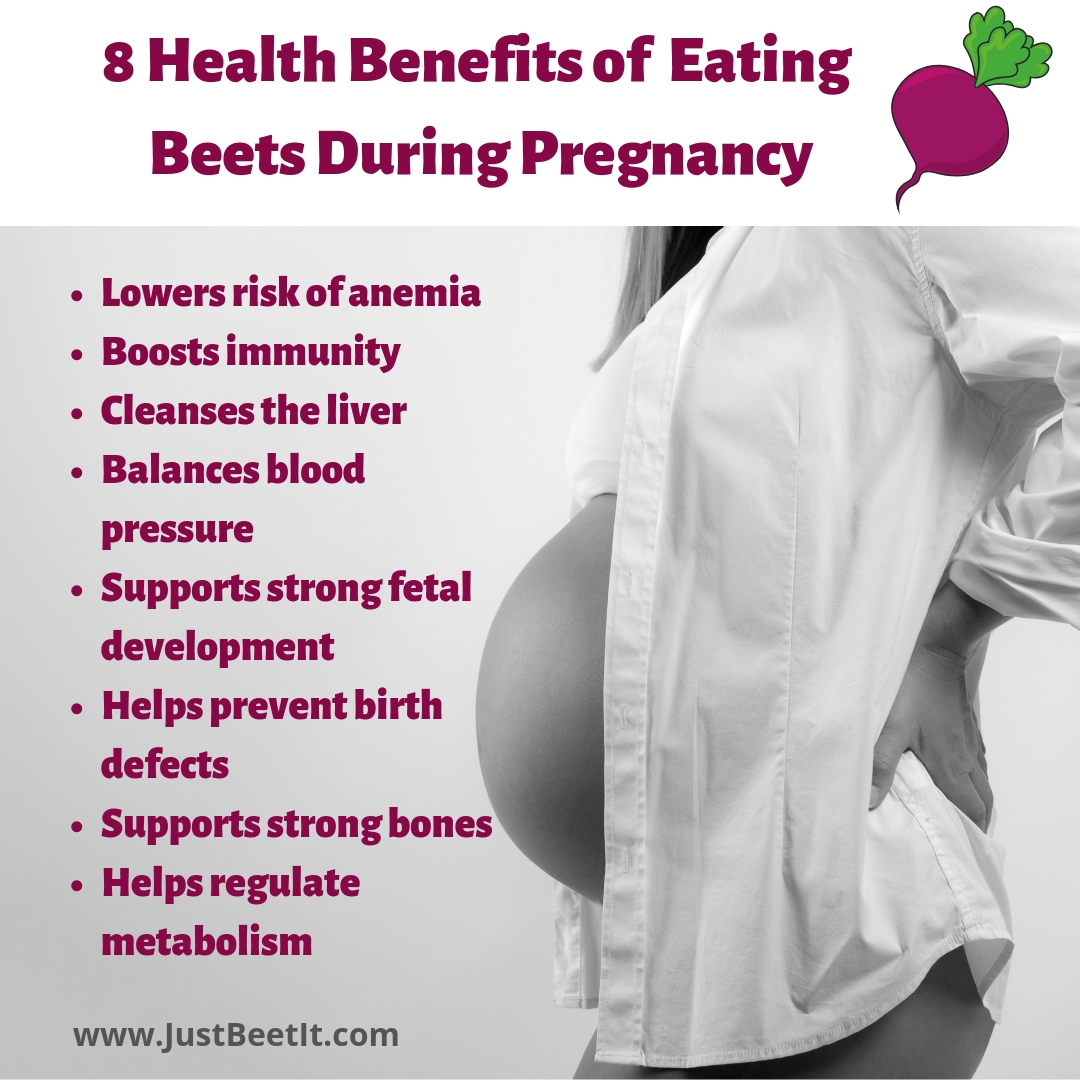BEETROOT NUTRITION
The BEETROOT (beta vulgaris) is the taproot portion of the beet plant and a powerhouse of nutrition. Beetroots are many colors and varieties; however, people are most familiar with the red table beet. To learn about beet varieties, visit "Don't Miss a Beet!"
The delicious and nutritious red table beet is a low-calorie food containing high levels of vitamins, minerals, and micronutrients, such as Folate (The beetroot is a FOLATE rock star!), Fiber, Magnesium, Potassium, Manganese, and Iron. The beetroot also contains significant amounts of boron, which relates to the production of human sex hormones.
Another BEETastic quality is the beet's antioxidant benefits. The beetroot's natural pigment is a strong indicator of this superfood's nutritional strength. Packed with antioxidants (fighting off free radicals), the beet contains a unique source of the phytonutrient, betalain* which contributes to detoxifying the liver and protecting the body from aging and disease.
Beetroot Daily Value % (100g, Cooked Beets)
BEET GREENS NUTRITION
Eat your greens. Your body will thank you! Beet Greens (beetroot leaves) are highly nutritious and healing. Historically, beet leaves were consumed as a green vegetable and used medicinally. Hippocrates, the Father of Medicine, was said to heal wounds with beet leaves as he believed that juice from the leaf bindings helped aid the healing process. As a nutrient-dense vegetable, beet greens** (the leaves) are a wonderful source of Calcium, Iron, Vitamin A (beta-carotene), Vitamin C, and Vitamin K. In fact, beet greens have more iron than spinach (a leafy green in the same botanical family)! Beet greens also contain lutein which contributes to eye health.
Studies show that beet greens fight Alzheimer's disease, strengthen bones warding off osteoporosis, and strengthen the immune system. Beet greens are incredibly diverse. They can be added raw to vegetable juice and salads or sautéed.
Beet Greens Daily Value % (100g, Raw)
BEETROOT AND BEET GREENS HEALTH BENEFITS
Beets and Cardiovascular Health
Drinking beet juice or consuming cooked beets may improve cardiovascular function and exercise performance. Throughout various studies, scientists are recognizing the health benefits of beets, especially for athletes due to the naturally occurring nitrates found in beets which increase circulation and improve running time. Muscles perform the same amount but require less oxygen (nitric oxide). Due to these findings, many athletes, such as Mohamed (Mo) Farah (Gold Medalist) competing in the 2012 Summer Olympics drank beet juice rather than Gatorade before events.
Potassium and dietary nitrates found in beets are also shown to reduce hypertension. A reduction in blood pressure is extremely important for avoiding heart disease and stroke. Studies show that drinking just 500ml of beetroot juice a day can significantly reduce high blood pressure.
Looking for delicious beet juice recipes? Try Beet Carrot and Ginger Wellness Juice, Pre-workout Super Beet Persimmon Juice, and Beet and Grapefruit Juice with Cayenne.
Beets and Pre-Natal Health
Beets contain a significant amount of Folate (Vitamin B9) which contributes to a healthy nervous system, synthesis of red blood cells, DNA and RNA. Both the greens and roots of beets are highly recommended for women who are planning to get pregnant and also during early pregnancy because beets provide a great source of Folate along with many other beneficial vitamins and minerals.
Rapidly growing tissues, such as those of a fetus, and rapidly regenerating cells, like red blood cells and immune cells, have a high need for Folate (Vitamin B9), a vitamin that is essential for the synthesis of compounds (purines and pyrimidines) which play an important role in developmental processes.
Consuming appropriate amounts of Folate is linked to decreasing birth defects and may help prevent neurodegenerative disorders. Women who consume Folate through their diet or take Folic Acid supplements before becoming pregnant, as well as early in pregnancy, may reduce the risk of having a child with an autism spectrum disorder, according to a recent scientific study.
NOTE: Folic Acid is made up of the same chemistry as Folate; however, it is produced synthetically for supplements. Consuming Folate through diet, found in specific nutritious foods, has a better absorption rate.
Beets and Blood Health
Used as a broth for the weak and aged in the 16th Century, the beetroot has often been described as a blood-building tonic or detoxifier of the blood. The roots and leaves of beetroot contain Iron, Potassium and Folate: all three contribute to healthy blood. Iron is at the center of the hemoglobin molecule, the red pigment in the red blood cells that is responsible for transporting oxygen around the body. Potassium, along with other minerals and vitamins may help to regulate blood pressure and heartbeat. Folate has been shown to have a positive effect on certain anemias.
Betalains, Oxalates, and Beeturia
* Betalains become less stable with heat, so it is best to keep beet steaming times to 15 minutes or less and roasting times under an hour in order to retain the best nutritional value.
**For individuals with existing and/or untreated kidney or gallbladder problems, you may want to avoid eating large amounts of beetroots and beet greens. Like many other healthy foods, beets (notably beet greens) contain amounts of oxalates (naturally occurring substances found in plants, animals, and human beings). See Just Beet It's "Disclaimer" under Legal for further details regarding physician care.
Beet juice may give your urine and bowel movements a red color. Do not be alarmed! This is a condition called beeturia and is not considered harmful. If you suffer from an iron deficiency, iron excess, or iron metabolism issues, you may be more likely to experience beeturia.
Resources
Barua, Subit, Salomon Kuizon, and Mohammed A Junaid. (2014). Folic Acid Supplementation in Pregnancy and Implications in Health and Disease. Journal of Biomedical Science. Retrieved from http://www.jbiomedsc.
Bryan, Nathan S. and Carolyn Pierini (2013) Beet the Odds: Harness the Power of Beets to Radically Transform Your Health. Austin, Texas: Neogenis Laboratories.
Bender, A.E. and D.A. Bender (1995) Oxford Dictionary of Food and Nutrition. Oxford, UK: Oxford University Press.
Davidson, Alan. (1999). The Oxford Companion to Food. New York: Oxford University Press Inc.
Fernandes, Alex. (2008). Research Shows a Daily Dose of Beetroot Juice Can Beat High Blood Pressure. Bio-Medicine. Retrieved from http://www.bio-medicine.org/medicine-news-1/Research-shows-a-daily-does-of-beetroot-juice-can-beat-high-blood-pressure-11043-1/.
Kita, Paul. (2014). The Ten Freshest Summer Foods. Retrieved from http://www.menshealth.com/nutrition/freshest-summer-foods.
Morgan, Diane. (2012). Roots: The Definitive Compendium with more than 225 Recipes. San Francisco, CA: Chronicle Books LLC.
Murphy, M., K. Eliot, R.M.,Heuertz, and E. Weiss. (April, 2012). Whole Beetroot Consumption Acutely Improves Running Performance. J Acad Nutr Diet. Retrieved from http://www.ncbi.nlm.nih.gov/pubmed/22709704.
Nottingham, Stephen. (2004). Beetroot. Retrieved from http://www.stephennottingham.co.uk/beetroot6.htm.
Nutrition Data. (2014). Retrieved from http://nutritiondata.self.com/facts/vegetables-and-vegetable-products/2349/2.
Robinson, Jo. (2013). Eating on the Wild Side. New York: Little, Brown and Company.
Splittstoesser, W. E. (2014). Beet. In Public Libraries. Retrieved from http://www.worldbookonline.com/pl/infofinder/article?id=ar052980.
USDA Government. (2018). Retrieved from https://www.ars.usda.gov/northeast-area/beltsville-md-bhnrc/beltsville-human-nutrition-research-center/nutrient-data-laboratory/docs/sr28-download-files/.




